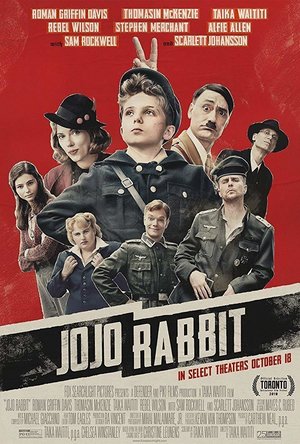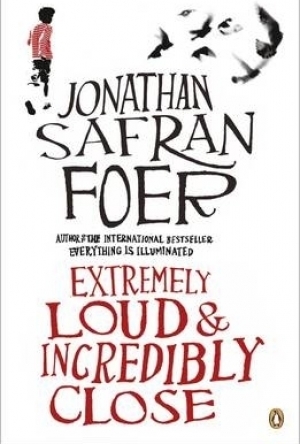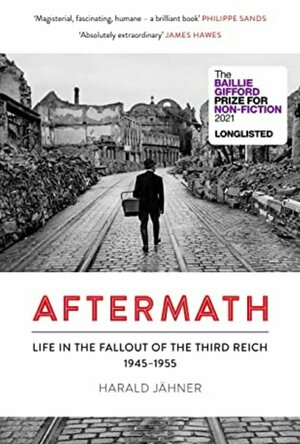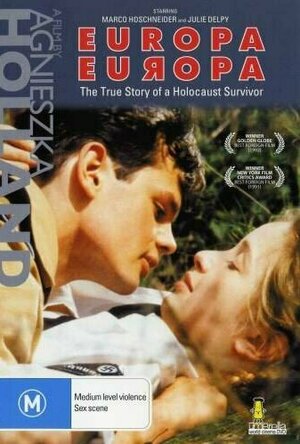BookwormMama14 (18 KP) rated For Such a Time in Books
Jan 2, 2019
"And who knows but that you have come to your royal position for such a time as this?"
Hadassah is hiding in plain sight as Stella Muller, secretary to SS Kommandant Colonel Aric von Schmidt at Theresienstadt. In 1944 the camp is a stopping point from which many are sent to Auschwitz. As she puts her life on the line to try and save her people she suspects that the Colonel has a tender heart despite his role as an SS officer. As their relationship grows, they will have to face their drastic differences. With this unconventional love Hadassah struggles to find the meaning behind it all. She does not understand how God could abandon His people to slaughter. But has the Lord brought them together for a bigger plan? Will Stella be able to save her people as well as the man she has grown to love?
A book written about the atrocities of the Holocaust is never easy to read. It is full of emotion and the history is tragic. Kate Breslin did not soften the details of the horrors of the second World War, even though this is a romance. However, she did give us a new perspective of love during the war. I was drawn in by the intriguing story line. I had never imagined a romance like this. However, there are true stories of similar relationships taking place: Edith Hahn Beer and Helena Citronova. Although Stella and Aric's story is different, it is a wonderful book. In every page you can feel the battle raging within Stella as she falls deeper in love with Aric. There were many times that I found myself grinning from ear to ear while reading one page and crying on the next. Be prepared for a wealth of emotion to overcome you as you read this book, but it is worth it! For Such a Time is a truly remarkable story of redemption through faith. We are reminded that God's love for us never fails and His forgiveness is never out of reach.
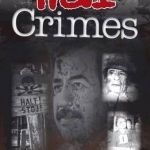
Crimes of the Century: War Crimes
Book
At the beginning of September 2013, top of the international agenda was to stop any further deadly...
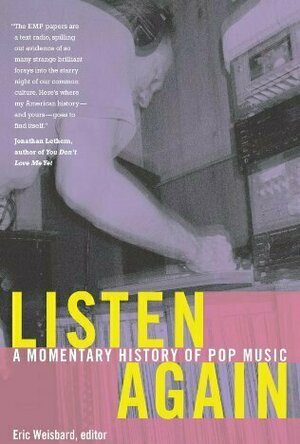
Listen Again: A Momentary History of Pop Music
Book
Arguing that pop music turns on moments rather than movements, the essays in Listen Again pinpoint...
Bob Mann (459 KP) rated Jojo Rabbit (2019) in Movies
Jan 16, 2020 (Updated Jan 16, 2020)
Perhaps to bolster his flagging self-esteem, Jojo has an imaginary friend - - Adolf Hitler (played by director Taika Waititi). Hitler provides him with sage - and sometimes foolish - advice. His mother (Scarlett Johansson), as well as obviously being hot and thus obtaining lustful looks from returning troops, is also kindly. She makes up for the absence of Jojo's father, due to the war, with the help of some play-acting and a sooty beard.
But, when alone in the house, Jojo hears noises from upstairs, his world - and his whole belief system - begins to unravel.
Comedies have tip-toed around the sensibilities of World War II in the past, most famously with Mel Brook's "The Producers". I don't think anyone's previously been brave enough to introduce the holocaust into the comedy mix. And - to a degree... we are NOT talking excessive bad taste here - the movie goes there. There's an underlying sharpness to some of the dialogue that - despite not being Jewish myself - nevertheless put my sensibilities on edge: the pit in hell 'set aside for Jews', for example, is filled with not only piranhas... but also bacon.
As a satire lampooning Antisemitism, much of the comedy is slapstick and the anti-Jewish sentiments expressed are deliberately ludicrous. And it's one of my issues I guess with the film. There are some good lines (Rebel Wilson's fanatical Nazi screaming "Let's burn some books" at the students) but some of the slapstick farce just didn't work for me. Sam Rockwell is great as a one-eyed ex-war hero looking for new challenges and exuberant costumes! But a lame gag from him about German Shepherds made me go "What? Really?". And this lessens the impact for me of the satire.
The second half of the film for me was far better, taking a much darker and edgier tone. There's a sudden turn in the film - brilliantly executed - that is truly shocking. This scene is somewhat reminiscent of one in that other great Holocaust comedy, "Schindler's List". It's understated, yet devastating. (Now, before seeing the film I'd heard from other reviews that the film "turned darker" and - based on the trailer - I'd kind of set in my mind what that would be. But I was wrong! So take this comment not as a spoiler, but as an anti-spoiler!).
As the war unravels for Germany, a late re-appearance by the imaginary Hitler is also memorable.
As the young star, Welsh kid Roman Griffith Davis - with no previous acting experience - turns in a star performance. Though to say that the performance ranks alongside the top 5 male performances of 2019 is, I think, overstepping the mark. Scarlett Johansson got a Best Supporting Actress nomination for her role. And I think this is deserved.
Elsewhere in the cast, few seemed to have recognized Thomasin McKenzie's role playing Elsa. The 19 year-old New Zealander really delivered for me. A strong female character, she's vulnerable yet with a will of iron under the surface. She made me really care about the outcome of the story.
Less positive for me is Rebel Wilson. Here she is marginally less annoying than I normally find her in that she's playing a deliberately annoying and unhinged character. But the role seemed largely redundant to me: it didn't add anything to the overall story (unlike Rockwell's - surprising - character arc).
If there was an Oscar for originality - and that WOULD be a good new award category - then this film would be a contender. It's certainly novel: amusing in places; disturbing in others. If you like your comedies on the edge and bit whacky - like "Death of Stalin" - then you will probably enjoy this. I'm not sure it's the best film of the year - and there are probably others I would swap into that Oscars nomination list - but it's still a well-made movie and a recommended watch.
(For the full graphical review, please check out One Mann's Movies at https://bob-the-movie-man.com/2020/01/16/one-manns-movies-film-review-jojo-rabbit-2020/ )
Alison Pink (7 KP) rated Extremely Loud and Incredibly Close in Books
Jan 15, 2018
Jonathan Safran Foer's book gave me that personal connection. While I know it is fiction, it felt SO incredibly real. His writing was very heartfelt...funny, depressing, hopeful, and heartbreaking all at once. It tells the story of Oskar Schell who lost his father on that horrible day. It tells the tale of the aftermath for those left behind, those who still today stuggle to get a handle on wrapping their minds around their loved one being gone, even though there is nothing to put closure to their loss.
Oskar spends months a searching for an explanation to a key he found at the bottom of a vase in his father's closet after he died. He embarks on the search hoping to feel close to his dad, if only for a little while longer. That search leads him all through New York and into the homes of a very eclectic group of people who are all dealing with some kind of tragedy. In the end, what he finds surprises Oskar, but also manages to pull him back to his mother and deal with his anger at the same time.
I'm not sure what I was expecting, but this book was a pleasant surprise. I laughed & cried, often times all from just one page of text. The story is accompanied by photos that just add to the personal nature of the story. I don't do this often if ever really, but I think this is a book I will read more than once.
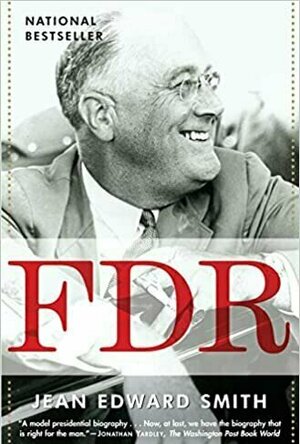
FDR
Book
One of today's premier biographers has written a modern, comprehensive, indeed ultimate book on the...
ClareR (6054 KP) rated Aftermath: Life in the Fallout of the Third Reich, 1945-1955 in Books
Feb 1, 2022
The black market was also a huge earner for many German citizens: one teenager is described as having thousands of Marks worth of cigarettes in his house. Money was there to be made for the improvising, bold, German!
What probably resonated with me most, was the lot of the German woman. They had been expected to be the perfect German Female during National Socialism, then experienced a kind of social and sexual liberation after the end of the war. However, when their husbands and men returned from captivity (or just made their ways home), they found themselves being expected to revert to the stereotypical role of the housewife. But they wanted more. They wanted to continue in careers, they wanted equality, and they didn’t necessarily want to deal with broken, defeated husbands (as cruel as this may seem).
What really surprised me, was how was how former Nazi party members still worked in positions of influence, both politically and in industry - and this was the case in both East and West Germany. Even though the Allies made a point of ‘educating’ German citizens about the holocaust, National Socialists seemed to largely escape punishment and carried on with their lives. Their children may have had their doubts as to their parents innocence, and the real movement to ‘out’ the national guilt didn’t really get going until the 1960’s, but there was dissent in the 1950’s already.
I could go on. This is such an interesting book, and written so accessibly. It didn’t read at all like a dry history book, and the photos and posters from the time are well chosen and really add to the book as a whole. This isn’t just a history book for history buffs.
Phillip McSween (751 KP) rated Europa Europa (1992) in Movies
Nov 5, 2019
Acting: 10
This movie can’t be found in many places. In fact, I had to watch the full version on Youtube, something I typically hate to do. We can get into supporting art later. The point I’m trying to make is, I didn’t really know many of these actors, but I was captivated by a lot of their performances, especially the main actor Marco Hofschneider playing the role of Solomon the Jewish boy trying to survive. He captures such a wave of emotions, sometimes in the same scene and you can feel him throughout his entire journey. Before the end of it, his character seemingly feels like a friend that you want to reach out to and help. It wasn’t hard to connect with the characters here.
Beginning: 10
We learn early on why Solomon ends up having to become a German. Essentially everything around him is destroyed and we get to see that in the first ten minutes of the movie. There were a couple of hard scenes involving explosions that really leant themselves to the reality of the movie as a whole.
Characters: 10
Cinematography/Visuals: 10
There is a heartbreaking scene towards the beginning of the movie where men are trying to escape the gruesome war by boat. One of the men jumps back into the ocean as he decides it would be better to go back to the fate they were trying to escape. It’s a scene shot so well in such a bleak fashion of hopelessness as you see throughout the movie.
Conflict: 10
Entertainment Value: 10
Keeps you engaged from beginning to end. Just about everything a movie should be. This action-drama war mix definitely does not disappoint.
Memorability: 8
Pace: 8
Just over an hour in, things start to slow down a taste and you feel the conflict starting to fade. Fortunately it doesn’t take too long for the pace to pick right back up. There is a lingering intensity here from the threat of Solomon being uncovered that keeps the movie at a steady boil.
Plot: 10
Resolution: 10
Overall: 96
I honestly had no idea I would like Europa Europa as much as I did, but was pleasantly surprised. It’s not only thought-provoking but it tugs at your heartstrings while giving you a unique look at a dark time. A highly recommended classic.
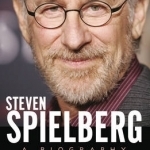
Steven Spielberg: A Biography
Book
Steven Spielberg is responsible for some of the most successful films ever made: "Jaws", "Close...
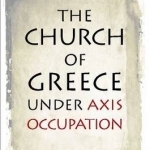
The Church of Greece Under Axis Occupation
Book
Axis forces (Germany, Italy, and Bulgaria) occupied Greece from 1941 to 1944. The unimaginable...

